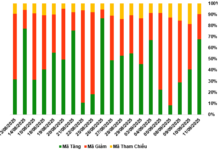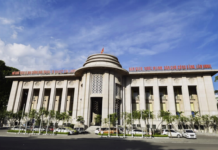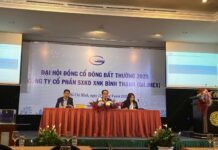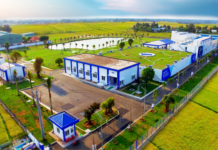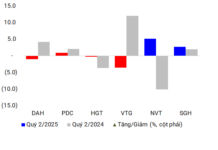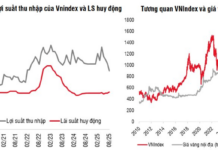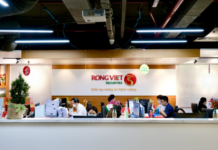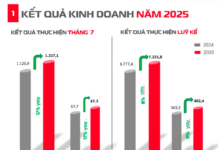On the morning of March 3rd, Prime Minister Pham Minh Chinh and Deputy Prime Ministers Le Minh Khai and Tran Luu Quang co-chaired a Lunar New Year meeting with prominent state-owned enterprises.
SOME STATE-OWNED ENTERPRISES STILL FACE LOSSES, FAIL TO MEET TARGETS
In his speech at the meeting, the Prime Minister highly appreciated the very basic achievements and results of state-owned enterprises in the past year, despite facing many difficulties.
According to the report at the conference, the total revenue of state-owned enterprises reached about 1.65 million trillion VND, exceeding the plan by 4%, pre-tax profit reached about 125.8 trillion VND, exceeding the annual plan by 8%, contributing to the state budget about 166 trillion VND, exceeding the annual plan by 8%. State-owned enterprises continue to hold significant resources in terms of capital, assets, technology, high-quality human resources, making significant contributions to the state budget and creating jobs for workers. State-owned enterprises contribute about 28% to the state budget revenue and attract about 700,000 laborers.
However, the head of the Government also recognized that there are still some loss-making enterprises, some groups, and corporations that have not achieved production and business targets, some groups and corporations that have negative profits, including large-scale and important enterprises.
“State-owned enterprises, especially groups and corporations, although they have made great efforts to implement new investment projects, still do not correspond to the resources entrusted to them; investment efficiency falls short of expectations, investment abroad faces difficulties, some large-scale investment projects fail, with potential risks. Some projects have accumulated losses for many years, and the method of restructuring has not been effective,” the Prime Minister pointed out.
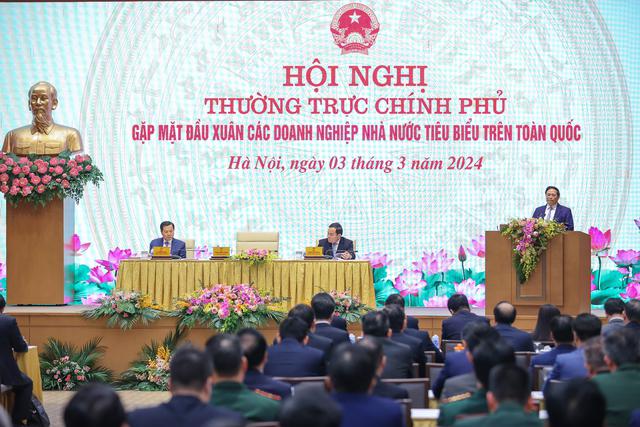
In addition, the competitiveness and scientific and technological capacity of state-owned enterprises are still limited, failing to meet the requirements as the backbone of the state economy, especially in the context of the 4th industrial revolution. Business management innovation is still slow, not truly oriented towards international principles and practices, high production and business costs, slow innovation in technology and business management tools.
The results of public investment disbursement are limited, and have not reached the average level nationwide in 2023. The proportion of investment in leading industries and sectors that are driving forces, such as clean energy production, renewal, high technology, semiconductors, and hydrogen, has not been prioritized. There have not been large-scale investment projects to create breakthrough momentum and spillover effects.
In addition, some enterprises have committed misconduct, corruption, and negative actions, which need to be resolved. State-owned enterprises have not been able to demonstrate their leadership role.
“The cause is that there are still places and times when they are passive and confused in the face of major changes, policy reactions are not timely, restructuring is not appropriate to the situation; the spirit of innovation and creativity in some groups and corporations is still limited, still afraid of mistakes, afraid of responsibility, some regimes, policies are not appropriate,” the Prime Minister emphasized.
The Prime Minister stressed the need to draw experience, point out the causes of the shortcomings, strictly handle those who make mistakes and violations, but not to be discouraged. To be sensitive to politics, sharp in economics, profound in science and technology, to change the situation and transform the state through all available thinking and experience, combined with the world’s experience. To be more proactive in proposing new ways in order to accelerate and overcome.
“State-owned enterprises must be confident to rise, not arrogant when winning, not discouraged when failing, creating new momentum, new enthusiasm, new achievements, new victories. The key is to timely detect difficulties, obstacles, timely policy responses, development mainly based on science and technology, innovation, taking human beings as the center, the subject, the goal, the driving force, the development resources,” the Prime Minister emphasized.
MAXIMIZING THE ROLE OF OPENING THE WAY AND LEADING IN THE ECONOMY
In the coming time, the Prime Minister requested continued comprehensive implementation of Directive No. 07/CT-TTg dated February 22, 2024, regarding management renewal, improving production and business efficiency, and strong promotion of investment and development by state-owned groups, corporations, state-owned enterprises, and related directives and conclusions.
Emphasizing some points, the Prime Minister requested continuing to maximize the opening and leading role of state-owned enterprises in the economy. State-owned enterprises need to be pioneers and leaders in innovation, technological development, and emerging sectors, diversifying the market, products, supply chains, and linking with foreign state-owned groups and private corporations to create value chains rather than doing business separately in the current integration context,” the Prime Minister said.
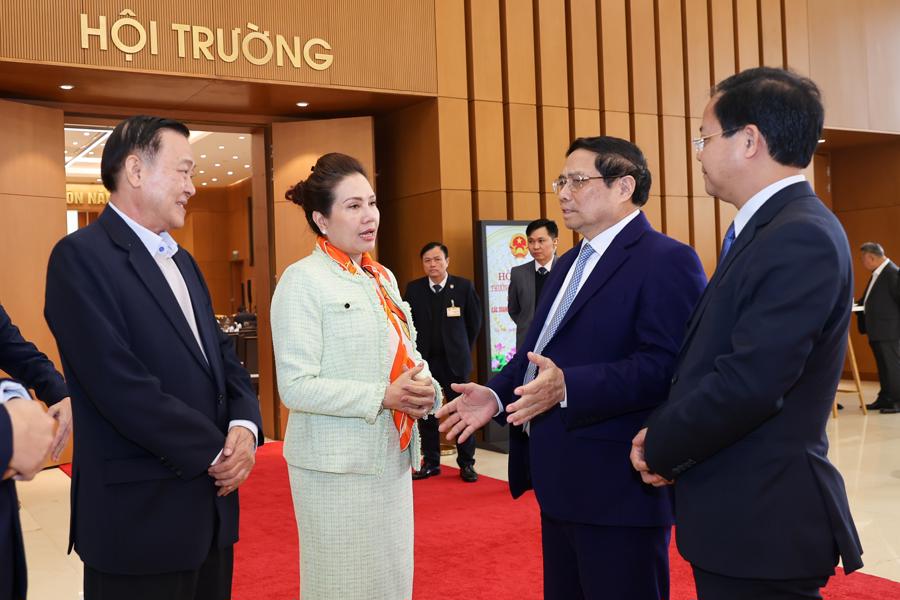
In addition, improving the efficiency of operations and enhancing the competitiveness of state-owned enterprises by improving quality, specifically in research, cooperation and implementation of some new energy and technology projects in line with global trends. Focus on renewing traditional growth drivers (investment, export, consumption), while promoting new drivers related to digital transformation, green transformation, circular economy, knowledge economy, shared economy, and climate change adaptation.
The Prime Minister also called for strengthening links with domestic enterprises in various economic sectors, creating supply chains and domestic supply, reducing dependence on foreign countries.
Accelerating digital transformation and the application of science and technology, promoting the establishment of innovation centers within enterprises, creating breakthroughs in productivity, quality, efficiency, and competitiveness; effectively implementing approved restructuring plans, development strategies, annual production, business, and investment plans, reviewed, supplemented, and adjusted to suit the situation.
In particular, the Prime Minister requested reviewing and evaluating the situation of enterprises, investment projects, increasing investment in enhancing innovative and creative capacity, restructuring management models according to modern, internationally suitable principles; streamlining the machinery, maintaining, increasing capital in efficient manufacturing and business enterprises suitable for the main industries.
Emphasizing the importance of building brands, correctly assessing and promoting the unique potentials, outstanding opportunities, and competitive advantages of each state-owned enterprise to advance. Resolve existing weaknesses, weak projects based on considering the overall interests rather than local benefits.
Highlighting that the right strategy will help overcome challenges, the Prime Minister emphasized the need to restructure management, specifically restructure the machinery-operating machinery, streamline activities, make them effective and efficient; restructure the labor force towards improving quality and reducing the number; restructure capital to ensure safety, development capital, focusing on investment and development; restructure production and business towards market-oriented, respecting the laws of supply and demand, competition; improving competitiveness, resilience to economic shocks both domestically and internationally; ensuring growth and thereby contributing to overall growth, the state budget, and improving the lives of workers.
Regarding public investment projects, the Prime Minister requested the strong implementation of key national projects, mobilizing resources from state-owned enterprises at the strategic level, overcoming the situation of scattered, decentralized, disorderly investment, ensuring focus, concentration, attracting social investment, mobilizing social resources. The Prime Minister gave an example that the construction of the 500 kV line 3 Quang Trach – Pho Noi required the mobilization of the strength of localities and enterprises to create competition, and prevent monopoly in the construction of this power transmission line.
“What I desire the most, the message I want to convey is that state-owned enterprises must play a pioneering and leading role in innovation, science, technology, and emerging sectors; diversify the market, products, supply chains, and linkages with foreign state-owned groups and private corporations to create value chains, not do business separately in the current integration context,” the Prime Minister said.
For ministries and sectors, based on their functions, tasks, and powers, the Prime Minister requested active, proactive, and responsible assistance to enterprises, creating conditions and opportunities for enterprise development, “not waiting for them to come and do”. Effectively coordinate with enterprises to remove difficulties, overcome challenges, promote strengths, limit weaknesses, advance, keep up and rise, accelerate development.
Ministries and sectors continue to implement the tasks assigned in Resolution No. 68/NQ-CP dated May 12, 2022 of the Government on continuing to renew, improve the efficiency of activities, and mobilize resources of state-owned enterprises, with a focus on state economic groups, state-owned corporations in economic and social development. Implement Directive No. 12/CT-TTg dated May 6, 2023 of the Prime Minister on tasks and solutions to renew the operations of the State Capital Management Committee at Enterprises and improve the efficiency of the operations of the 19 state economic groups under its management.
The Prime Minister assigned the Ministry of Planning and Investment to lead the construction of a plan on state management with state-owned enterprises, towards separating the functions of the owner and the function of state management; the State Capital Management Committee at Enterprises to review, propose improvements to related regulations and be more active, proactive in operations.
Localities must actively contribute to building institutions, building a team of officials, establishing oversight mechanisms to ensure sound and effective operations of state-owned enterprises.



